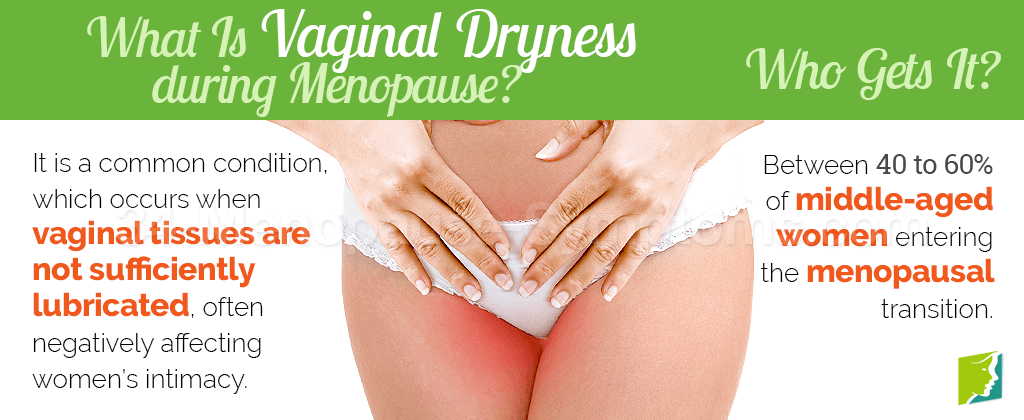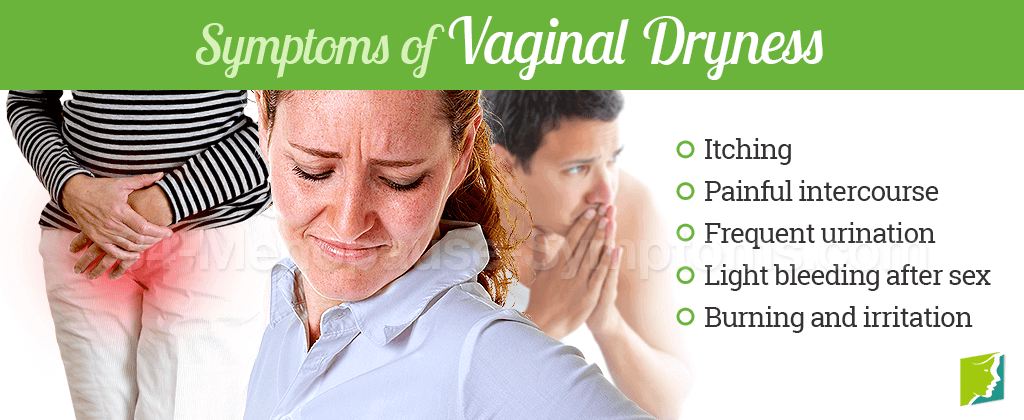Though vaginal dryness can occur at any point in a woman's life, this troubling condition is more likely to happen during menopause due to decreasing levels of estrogen in the body. Hormonal changes characteristic of menopause can change the moisture levels in the vaginal area. Vaginal dryness is common; studies report that 40 - 60% of women develop this symptom at some point during the menopause transition.

Other studies have found that many women are not informed or are embarrassed to ask questions about vaginal dryness. However, learning more about this common symptom of menopause is one of the best ways to seek a solution and improve one's physical and emotional well-being. Continue reading to discover more about vaginal dryness, along with common symptoms and risk factors.
Vaginal Dryness Definition
Vaginal dryness, medically termed atrophic vaginitis, is defined as a lack of adequate moisture in the vaginal area.
The body naturally lubricates the vaginal walls with a thin layer of moisture. This moisture layer is composed of a clear fluid excreted from the cervix. When a woman is sexually aroused, for instance, blood vessels in the vaginal area receive more blood flow, stimulating the secretion of fluids and increasing vaginal lubrication. However, hormone changes that occur during menopause and other life events can disrupt this process, both during sex and daily life.
There are a variety of symptoms that may appear along with vaginal dryness. To learn more about these signs and symptoms, keep reading below.
Symptoms of Vaginal Dryness
Symptoms of vaginal dryness can range in severity from mild and slightly annoying to significantly disruptive. Many women find that the symptoms of vaginal dryness can affect the way they feel about themselves, sex, and life in general. Sexual issues stemming from vaginal dryness can strain relationships and affect a woman's self-esteem and feelings of femininity. There is a wide range of signs of this condition, though the following are the most common symptoms of vaginal dryness:
- Pain during intercourse
- Soreness, itching, or burning
- Painful urination
- Bleeding after intercourse
Vaginal dryness is an issue that affects a high percentage of menopausal women, though some may be more susceptible than others. Keep reading to learn more about potential risk factors and to learn who is most likely to be affected.

Risk Factors for Vaginal Dryness

While these symptoms are common, certain factors can aggravate or worsen vaginal dryness in menopause. For example, women who are taking medications to prevent breast cancer may find that their symptoms of vaginal dryness are more severe. Stress and smoking are also other major triggers of vaginal dryness.
Other factors can also cause or contribute to vaginal dryness. A tendency towards anxiety or the use of certain medications can also play a role in vaginal dryness, especially the use of birth control pills or other medications that alter hormone levels. Keep reading to learn more about the causes of vaginal dryness in menopausal women.
Sources
- Love, S. (2003). Menopause and Hormone Book. New York: Three Rivers Press.
- National Institutes of Health. (2013). Vaginal dryness. Retrieved April 29, 2016, from https://www.nlm.nih.gov/medlineplus/ency/article/000892.htm



